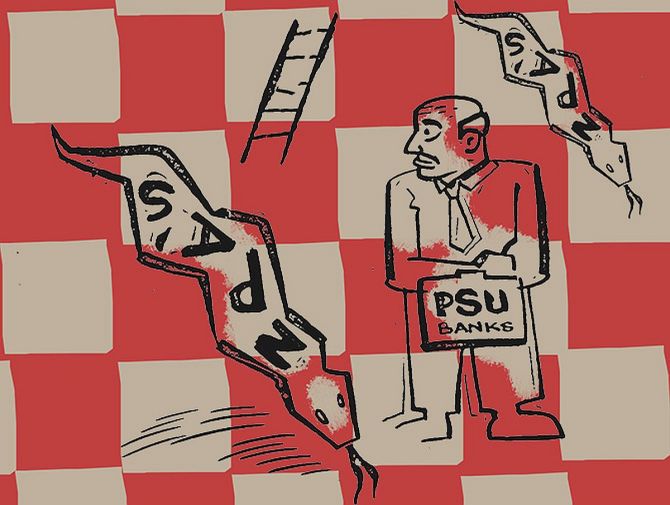Govt mulls easing NPA norms
Move to increase 90-day window to 120 days to give more time to borrowers to service loans.
The Centre is in talks with the Reserve Bank of India (RBI) and other stakeholders to consider the possibility of easing the norms for non-performing assets (NPAs), or bad loans, by extending the classification period to at least 120 days.
At present, a loan account turns into an NPA if it is not serviced for 90 days.
The proposal comes in the wake of mounting bad loans, particularly of state-owned lenders, due to disruptions caused by the Covid-19 pandemic.
According to the RBI, the NPA ratio of all commercial banks may increase from 8.5 per cent in March 2020 to 12.5 per cent in March 2021.
The government is of the view that the time given under the existing norms is too short for assets to be classified as bad loans.
“Various possibilities have been explored to address the bad loan issue, including the recognition of the NPA.
“One option is to extend the time period of NPA classification as it is observed that the time given to the borrowers to repay the dues should be increased up to at least 120 days,” said a senior government official.
The RBI had given temporary relief by providing asset classification standstill for standard accounts that availed a moratorium between March 1 and May 31.
This effectively meant that the bad loan classification period changed to 180 days for all such accounts from 90 days.
But in a recent report, the regulator said that banks would face a challenging time in 2021-22, as the policy support is rolled back.
Even though the government is consulting all stakeholders, sources said the final call will be taken by the RBI.
Extending the NPA classification period may require certain amendments to the Banking Regulation Act.
Currently, banks have three internal benchmarks before classifying a loan as an NPA.
Accounts which are overdue for 1-30 days are classified as special mention account-0 (SMA-0), those that are overdue for 31-60 days are classified as SMA-1, and those overdue for 61-90 days are classified as SMA-2.
Any account overdue for more than 90 days is recognised as an NPA.
If the proposed move is adopted, both banks as well as borrowers will benefit, say bankers.
“Just by changing the classification, the overall NPAs in banks could come down.
“It will give time to borrowers to chalk out a repayment plan as their businesses improve with the economy picking up. It also becomes easier to raise money from other means if the account is not classified as NPA,” said a former banker.
However, some experts feel that even though the move is intended to reduce bad loans, it will have adverse consequences.
“This 90-day norm is an international practice in line with Basel III banking norms.
“Requirements of provisioning of such loans is the prerogative of the government and the concerned jurisdiction.
“However, any change in the norms may disturb the international transactions involving banking correspondents as these depend entirely on the ratings of the concerned bank,” said Ashvin Parekh, managing partner, APAS.
Besides, it would be unfair on those businesses that are repaying on time.
Tweaking the framework would also make investors wonder if the bank’s books are reliable or not.
The government has taken up the issue based on observations by various regulatory committees, agencies, and investors in both India and abroad.
It is learnt that the finance ministry is also exploring the option of setting up bad banks, or banks set up to buy the bad loans of financial institutions.
Economic Affairs Secretary Tarun Bajaj said recently that the government was looking at all possibilities, including establishing a bad bank, to improve the health of the banking sector.
The government has recapitalised public sector lenders and will continue to pump in capital when needed, said Bajaj.
Source: Read Full Article

